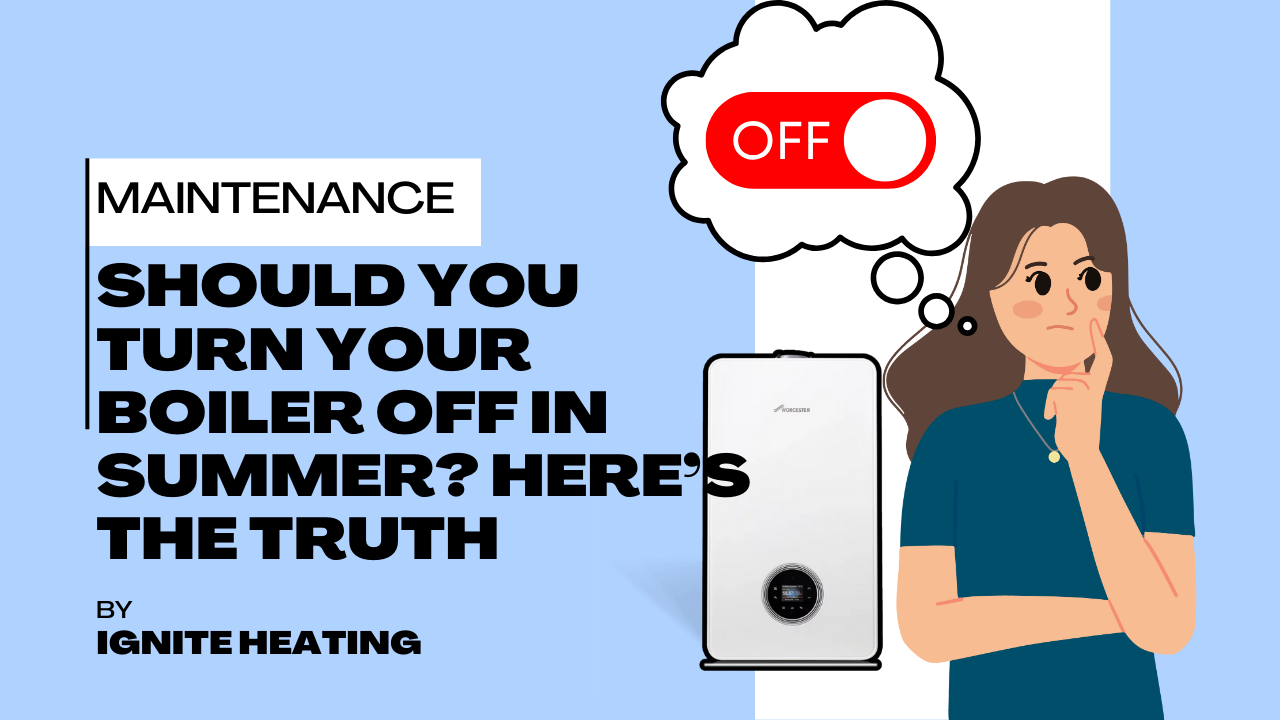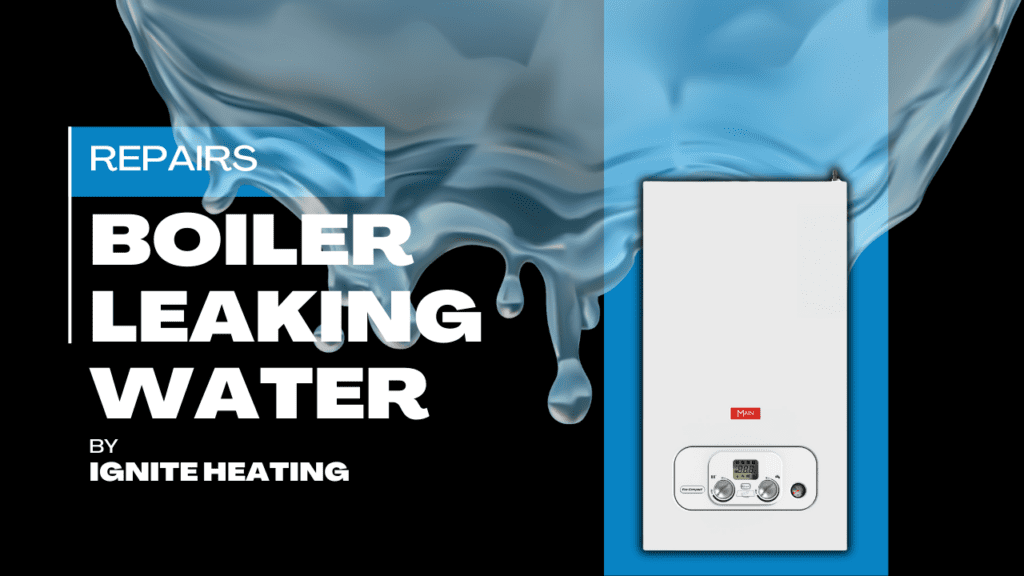
Should You Turn Your Boiler Off in Summer? Here’s the Truth.
Search Should You Turn Your Boiler Off in Summer? Here’s the Truth. Summer’s here finally. The sun’s shining (most days),

A leaking boiler can be a frustrating and potentially serious issue for homeowners. Boilers are designed to operate under high pressure and extreme temperatures, meaning even small leaks can indicate underlying problems that need immediate attention.
In some cases, a leak may be caused by something minor, such as a loose connection or a worn-out washer. However, more serious leaks often point to fundamental issues with the boiler’s internal components, which could be due to poor manufacturing, excessive wear and tear, or corrosion over time.
The quality of materials and components used in a boiler has a huge impact on its lifespan and reliability. Boilers which are manufactured with stainless steel heat exchangers, durable brass fittings, and robust seals, are likely to last a good while before leaking and causing problems.
However, lower-cost boilers often use plastic components, thinner metal parts, and cheaper seals, which are more prone to degrading over time. If a boiler is built with poorly made materials, it is much more likely to develop leaks within just a few years of installation.
This is why choosing a high-quality boiler from a reputable manufacturer can save you money in the long run. Investing in better materials means fewer leaks, lower repair costs, and a longer lifespan for the heating system.
Boilers have an average lifespan of 10 to 15 years, but as they get older, they become increasingly difficult to repair.
🔹 Spare Parts Availability: Manufacturers stop producing spare parts for older models, making it harder to find replacements for internal components.
🔹 Corrosion and Wear: Over time, internal parts, such as the heat exchanger, pipework, and seals, deteriorate beyond repair. If the corrosion has spread extensively, fixing one leak may only be a temporary solution, as another part is likely to fail soon.
🔹 Cost vs. Benefit of Repair: If a major component like the heat exchanger is cracked, the cost of replacing it can be as much as a new boiler. In these cases, a full boiler replacement is usually the more economical choice.
If your boiler is over 10 years old and starting to leak, it may be a sign that it’s nearing the end of its lifespan. While some minor leaks can be repaired, persistent or internal leaks often mean it’s time to consider a new boiler rather than investing in ongoing fixes.
Boiler leaks can occur for several reasons, from minor issues like faulty seals to more serious concerns like internal corrosion. Here are some of the most common causes:
Many modern boilers use plastic fittings to connect pipework and components. While these are cost-effective, some poorly made or low-quality plastic fittings can degrade over time, leading to leaks. If a plastic component has cracked, it may need to be replaced with a more durable alternative.
Boilers have a lifespan of around 10–15 years. As they age, parts inside can corrode, seals can weaken, and leaks can develop. If your boiler is over a decade old and leaking, it may be a sign that it’s time to consider a replacement.
In colder months, condensation pipes and other external components of your boiler can freeze, leading to pressure build-up and leaks. Frozen pipes can also cause cracks, which may result in water leaking when the ice thaws.
If your boiler’s pressure is too high, it can force water out through safety mechanisms, such as the pressure relief valve. This often happens if there’s an issue with the expansion vessel or if too much water has been added to the system.
Seals inside the boiler are designed to prevent leaks, but they can degrade over time due to exposure to high temperatures and pressure. A damaged seal can cause water to leak from around the pump or other internal components.
Over time, vibrations and temperature fluctuations can loosen pipe fittings. If a connection is not properly sealed, it can lead to leaks.
The heat exchanger is a critical component of your boiler that transfers heat to the water. If it develops a crack due to constant expansion and contraction from heating cycles, it can cause serious leaks.
If the leak is coming from the central heating pipes inside your boiler, follow these steps:
✅ Turn off the Boiler – This prevents further damage and ensures safety.
✅ Turn Off the Water Supply – Locate the stopcock (usually under the sink or near the boiler) and shut off the water supply to stop the leak.
✅ Place a Bucket Under the Leak – This will prevent water from spreading and causing damage to floors or electrics.
✅ Call a Gas Safe Engineer – Leaking central heating pipes should be professionally inspected and repaired. Do not attempt to fix them yourself.
The cold and hot feed pipes carry water in and out of the boiler. A leak in these pipes can affect your water supply and pressure.
🔹 Cold Feed Pipe Leak
Turn off the main water supply immediately.
Catch any dripping water with a towel or bucket.
Avoid using your taps until a professional has assessed the issue.
🔹 Hot Feed Pipe Leak
Shut off the boiler and allow it to cool.
Turn off the main water supply.
Be careful, as the leaking water may be hot.
Contact a Gas Safe engineer to repair or replace the pipe.
To reduce the risk of leaks, consider these preventative measures:
✔ Regular Servicing – The Key to Boiler Longevity
Just like a car, a boiler needs regular servicing to keep it running safely and efficiently. An annual service by a Gas Safe registered engineer can help detect and resolve minor issues before they turn into costly leaks or breakdowns.
✔ Monitor Pressure Levels – Avoid Excessive Strain on Components
Your boiler’s pressure plays a crucial role in its overall health. If the pressure is too high, it can strain internal components and cause leaks from the pressure relief valve or seals. If it’s too low, the system may stop working efficiently.
✔ Check for Signs of Corrosion – Catch Problems Early
Corrosion is a major cause of boiler leaks and often develops gradually over time. Regularly inspecting your boiler for early signs of rust or deterioration can help prevent leaks before they become serious.
✔ Protect Against Freezing – Prevent Condensate Pipe Blockages
One of the most common causes of boiler leaks in winter is a frozen condensate pipe. This pipe removes waste water from the boiler, but if it freezes, it can cause a blockage that leads to pressure buildup and leaks inside the boiler
A leaking boiler should never be ignored. Whether it’s a minor drip or a major leak, it can lead to water damage, heating failures, and expensive repairs if not addressed quickly. If you notice a leak, follow the steps outlined above and contact a Gas Safe engineer to assess and fix the problem.
If your boiler is old or frequently leaking, it may be more cost-effective to consider a replacement. Need expert advice? Get in touch with a professional heating engineer today.

Search Should You Turn Your Boiler Off in Summer? Here’s the Truth. Summer’s here finally. The sun’s shining (most days),

Search Should I Upgrade My Central Heating System Before Winter? Winter in the UK can be brutal, with freezing mornings,
© 2024 Ignite Heating. All rights reserved